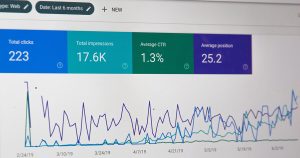Shortened URLs are a convenient tool, compacting lengthy links for efficient sharing and link management. However, understanding potential risks and considerations before using them is crucial. In this article, we will explore the risks and considerations you should be aware of before incorporating shortened URLs into your online practices. This knowledge will ensure safe and effective use of shortened URLs.
Risks and Considerations
1. Potential for Misuse
Shortened URLs can be generated anonymously, opening the door for malicious users to hide illicit content or malware. It is important to verify the reliability of a shortened URL before clicking to avoid potential security threats.
2. Risk of Link Expiration
Some URL shortening services have expiration dates or usage limits, meaning the links are not guaranteed to be permanent. When using shortened URLs, it’s essential to be aware of the service’s policies and any expiration dates associated with the links.
3. Redirect Delays
Shortened URLs introduce an additional step of redirection, potentially causing a slight delay in access speed. This can have implications for SEO, and it’s crucial to consider how these redirects might impact overall website performance.
4. Privacy Concerns with Statistical Data
Certain URL shortening services collect click data and statistics. As this involves personal data, it is crucial to review the privacy policy of the service to understand how this information is used and ensure user privacy.
Safe Use of Shortened URLs
1. Choose a Reliable Service
Opt for well-known and reputable URL shortening services with strong security measures. Services like Bitly and TinyURL are examples of platforms with established reliability and security.
2. Pre-check URLs
Before clicking on a shortened URL, verify the original URL behind it. Confirming the legitimacy of the link before opening it can prevent access to malicious content.
3. Check for Expiration and Limits
Review the policies of the URL shortening service regarding link expiration and usage limits. Regularly update or refresh links to prevent link expiration issues.
4. Be Privacy Conscious
When a service collects statistics or click data, be aware of its privacy policy. Ensure that the service aligns with privacy concerns and safeguards personal information.
Conclusion
While shortened URLs offer convenience, understanding the associated risks and considerations is essential. To use shortened URLs safely and effectively, choose reliable services, pre-check URLs for legitimacy, be mindful of expiration dates, and consider privacy implications. By incorporating these practices, you can mitigate potential risks and confidently use shortened URLs in your online activities.
















